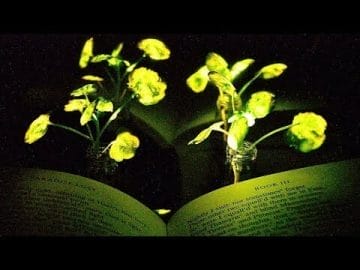Pollination is naturally done by insects and animals which allows plants to reproduce. Without the transfer of the pollen from the male part of a flower to the female part of another flower, fertilization cannot be complete.
But now there’s a new being that does the same: a tiny drone. Japanese researchers have equipped a drone with horsehairs coated with a special gel that is critical in the process of pollination.
Eijiro Miyako, one of the authors of the study from the National Institute of Advanced Industrial Science and Technology in Japan, said that this is the world’s first demonstration of pollination by an artificial robotic pollinator.


Source: AAAS
In a $100 drone readily available in the market, the researchers attached horse hair bristles from a paint brush to act effectively as the pollinator, like the torso of a bee. These hair bristles were coated with sticky gel, which is used to capture the pollen when the drone touches the flower, as a semi-permanent “glue.”
But unlike most gels, this one developed by Miyako a decade ago for a different purpose has a distinct quality.
“Conventional gels are mainly made of water, so they evaporate quickly, which makes them useless for this application. Our sticky gel does not evaporate even if put in a vacuum or a hot oven,” he explained.

Source: AAAS
Moreover, even when it was kept for a long time, Miyako noticed that the size, volume and viscosity of the gel has never changed. That makes it an ideal candidate as an agent in the pollinator.
The setup involved a huge flower and a controlled drone, but he hopes this will change soon.
“I believe that some form of artificial intelligence and GPS would be very useful for the development of such automatic machines in future,” Miyako said.
With regards to this possibly replacing pollinators, director of the Center for Pollinator Research at Penn State University, Christina Grozinger, said that there is a little chance.
“Pollinators have evolved specialized behaviors to work with different kinds of flowers. The proposed artificial pollinator does not have any of these specialized behaviors, and thus really can only ‘pollinate’ flowers that are extremely easy to pollinate,” she added.
A report released by the United Nations indicated that about 75% of the world’s crops depend at least in part on pollination, with its estimated value to food between $235 billion and $577 billion a year.
The same report revealed that many pollinators are under threat like bees and butterflies. They are part of a group called invertebrate pollinators, which 40% of species face extinction.
Source: CNN












